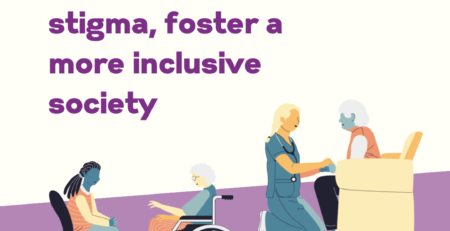Introduction
In the midst of the festive season, where joy and togetherness are celebrated, trees adorned with twinkling lights, windows decorated with Christmas ornaments, classic films airing on every channel, and carols echoing through the streets—all these holiday symbols have the power to evoke the most wonderful emotions. However, they can also feel oppressive when we’re finding it difficult to catch the ‘spirit’.
The fantasy of a perfectly wrapped “in-a-bow” holiday experience is seldom the reality for most people. More commonly, the holidays bring about heightened stress and loneliness, even for those who proudly declare they love the festive time. It’s often the one time each year when families come together. Nevertheless, factors such as living far from family, missing loved ones, or dreading social events can contribute to this sense of isolation However, for some, they may have no one with whom to spend the holidays or have people they long to be with but they are either far away or are no longer around….Factors such as living far from family, missing loved ones, or dreading social events can contribute to this sense of isolation.
Coping Strategies for Holiday Loneliness
Navigating loneliness during the holidays comes with no rulebook – it’s about doing what feels right in the moment. The key is to tune in to your emotions and heed what your heart is telling you. If it craves solitude, grant yourself that precious space and grace. Take the time to be alone with your thoughts, acknowledging and validating them.
Conversely, if your heart yearns for connection, seek out a trustworthy confidant. Find someone who listens without judgment, offering support in your time of need. Whether you choose solitude or the company of loved ones, make the moments count.
When opting for alone time, indulge in self-care activities that bring joy – a massage, a solo dining experience, or a cosy night in with a bubble bath and a captivating book.
For those seeking more social interaction, spending the holidays with loved ones is a wonderful choice. If that’s not feasible, contribute to the community by volunteering at a soup kitchen or local animal shelter. However, you choose to tackle holiday loneliness, prioritise activities that bring happiness to your heart.
Manage Expectations
The holiday season often amplifies feelings of loneliness, largely due to societal expectations that place a hefty burden on individuals. Whether it’s the pressure to buy gifts or attend events, the absence of a romantic partner or close friend can feel more pronounced during this time. The reassuring news is that reassessing your expectations can bring about a positive shift.
Consider embracing the idea that bringing a good friend to a Christmas party is entirely acceptable, eliminating the need for a romantic partner. Similarly, you don’t have to fully comprehend your family members to cherish the love they offer. Shifting your focus towards gratitude for what you have becomes crucial, particularly as an antidote to comparing your life to the seemingly perfect snapshots shared on social media.
Seeking Social Support
Absolutely, the feeling of loneliness can pervade even in a crowded room. Yet, actively maintaining connections makes it considerably more challenging to feel isolated. There are myriad ways to strengthen the existing bonds in your life, like engaging in more conversations with colleagues during the holidays, reconnecting with neighbours, or setting up a video call with a long-lost friend residing overseas. The festive season serves as an opportune moment to reach out to those you haven’t spoken to as frequently as you’d like, catching up and fostering connections before the new year begins.
Studies, such as those by Holt-Lunstad et al. (2015), emphasise the positive impact of social connections on mental health. Utilising available resources can create a sense of belonging and support during the holidays.
Volunteering and Giving Back
Research consistently highlights the positive impact volunteering has upon mental health. Engaging in activities that involve helping others can provide a sense of purpose and connection. Research by Aknin et al. (2012) suggests that acts of kindness and prosocial behaviour contribute to increased well-being. Encouraging individuals to volunteer or participate in charitable activities during the holiday season not only enables individuals to make a meaningful difference in the lives of others but also provides a pathway to build connections with compassionate folks.
Self-Care Practices
While occasional feelings of loneliness may creep in here and there during the holidays, redirecting your focus inward can significantly enhance your solo moments. Consider indulging in activities you truly enjoy on your own. Whether it’s a home spa session with a bubble bath and face mask or cosying up on the couch with a cup of hot chocolate and a captivating book, prioritise activities that bring you joy. Alternatively, dedicate time to your hobbies or explore acquiring new skills, or engage in mindfulness strategy.
Whatever you opt for, acknowledge that prioritising your own happiness not only contributes to a more positive experience but also boosts your self-esteem.
Professional Support and Counselling
When loneliness starts to seep in, reassure yourself that these feelings are entirely normal. Taking the step to share your emotions with someone, be it a trusted friend or a mental health professional, can be remarkably beneficial.
For those experiencing intense feelings of loneliness, seeking professional support is critical. Studies, including those by Masi et al. (2011), underscore the effectiveness of counselling and therapy in addressing loneliness.
Conclusion
Loneliness is not a one-size-fits-all experience, and understanding its intricacies during these holidays helps to foster empathy and support. Factors like: social comparison and expectations, grief and loss, isolation and lack of social support, and geographical distance.
The holiday season brings its share of joy, but it can also unearth less-than-ideal behaviours in some of us. People may say and do hurtful things to one another, for no reason at all. A family member or friend my drink a little too much or seem inseparable from their mobile phones. Learning to enjoy and even laugh at the people you are close to can sometimes be challenging, but it’s important to do. Opting to focus on the positive interactions and allowing yourself a bit of space when needed can make the holiday experience more bearable. It may not be flawless, but choosing to be with others instead of dwelling in solitary self-pity can be a powerful and affirming choice.
Let’s remember that mental health is like a delicate Christmas ornament, and deserves our utmost care. Loneliness doesn’t need to be the outcome, it can ‘whisper’ us to tend to our emotional well-being more effectively. And, in reaching out to others or seeking solace within ourselves, we can experience the strength that resides in vulnerability.
The holidays may amplify feelings of isolation, yet within that solitude lies an opportunity for profound introspection and self-compassion.
May this season of celebration become a platform for destigmatising conversations around loneliness and mental health. Reaching out for support is a courageous step and often the first path towards healing.
In cases where loneliness becomes overwhelming, seeking professional help is a valid and effective option. Psychological interventions, as evidenced by Cacioppo et al. (2015), can play a crucial role in reducing loneliness, emphasising the importance of a comprehensive approach that includes mental health support. By acknowledging the diverse experiences individuals may have during this season and providing a range of supportive measures, a collective effort can work towards making the holidays a time of genuine warmth and inclusivity for everyone 😊.













